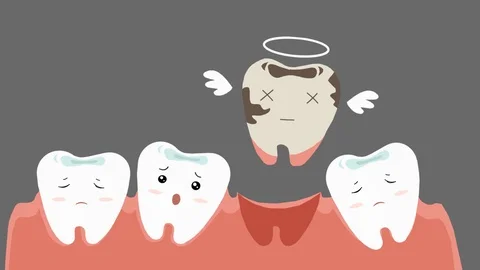
How to Fix a Cracked Tooth Naturally (Fast & Safe Remedies)
A cracked tooth can be painful and concerning. While severe cracks usually require professional dental care, minor cracks or craze lines (superficial cracks on the enamel) might be managed with natural remedies to reduce discomfort, prevent worsening, and support overall oral health.
In this article, we’ll explore natural ways to relieve pain, strengthen your enamel, and prevent further damage. However, if you’re experiencing severe pain or deep fractures, it’s crucial to consult a dentist.
Can You Heal a Cracked Tooth Naturally?
Before trying any home remedies, it’s essential to recognize the symptoms of a cracked tooth:
- Pain when chewing or biting down
- Sensitivity to hot, cold, or sweet foods
- Intermittent pain that comes and goes
- A sharp edge that you can feel with your tongue
- Swollen gums near the affected tooth
My Personal Experience Dealing with a Cracked Tooth
Last year, I noticed a sharp pain while eating, and my tooth felt sensitive to cold drinks. A quick dental check confirmed I had a minor enamel crack. Instead of rushing for expensive treatment, I tried a few natural remedies like clove oil and salt rinses. Within a week, the pain subsided, and my dentist later confirmed the crack hadn’t worsened. While natural treatments worked for me, I still recommend seeing a dentist if symptoms persist.
Natural Remedies for a Cracked Tooth
1. Salt Water Rinse (Reduces Inflammation)
Gargling with warm salt water can help reduce bacteria and inflammation, preventing infection from developing in a cracked tooth.
How to use:
- Mix ½ teaspoon of salt in a cup of warm water
- Swish around your mouth for 30 seconds
- Repeat 2–3 times a day
2. Clove Oil (Natural Pain Relief)
Clove oil contains eugenol, a natural anesthetic and antibacterial agent that can help numb pain and prevent infection.
3. Turmeric Paste (Anti-inflammatory & Antibacterial)
4. Oil Pulling (Supports Oral Health)
5. Aloe Vera Gel (Soothes Irritated Gums)
Strengthening Your Enamel with Diet
Your diet plays a crucial role in supporting enamel strength and preventing further cracking. Consider consuming:
- Calcium-rich foods (dairy, almonds, leafy greens)
- Vitamin D sources (sunlight, fatty fish, egg yolks)
- Phosphorus-rich foods (meat, nuts, beans)
- Crunchy vegetables like carrots and celery to stimulate saliva production
Avoiding Further Damage
If you have a cracked tooth, it’s essential to avoid:
- Chewing on hard foods (ice, nuts, hard candy)
- Using your teeth to open packages
- Clenching or grinding your teeth (wear a night guard if needed)
When to See a Dentist
While natural remedies can help manage minor cracks, professional intervention is required if:
- The pain becomes intense or constant
- The tooth is loose or has sharp edges
- You notice swelling or infection
- You have a deep fracture that reaches the inner layers of the tooth
A dentist may recommend bonding, crowns, or a root canal depending on the severity of the crack.
Final Thoughts
Minor tooth cracks can often be managed at home with natural remedies, but it’s crucial to monitor symptoms and seek dental care when needed. Salt rinses, clove oil, and a diet rich in enamel-supporting nutrients can help maintain oral health and prevent further damage.
If you’re unsure whether your cracked tooth requires professional treatment, consult a dentist to ensure you’re making the best decision for your dental health.
References & Sources
- WebMD – Cracked Tooth Guide
- Healthline – Cracked Tooth Symptoms & Treatment
- American Dental Association (ADA)
About the Author
Dr. James Carter, DDS
Dr. Carter is a licensed dentist with over 15 years of experience in restorative and holistic dentistry. He specializes in natural dental care, helping patients maintain strong teeth without unnecessary procedures. His work has been featured in major health publications, and he regularly contributes to oral health research.


